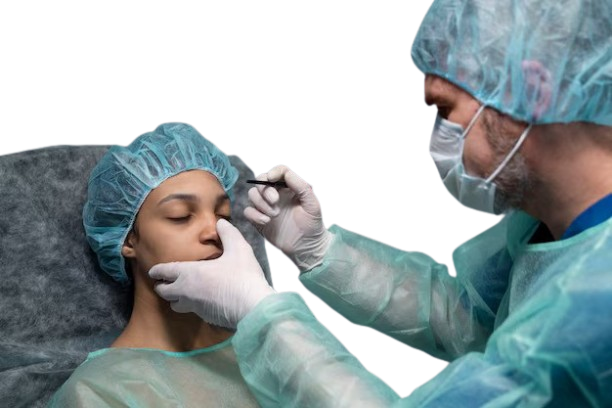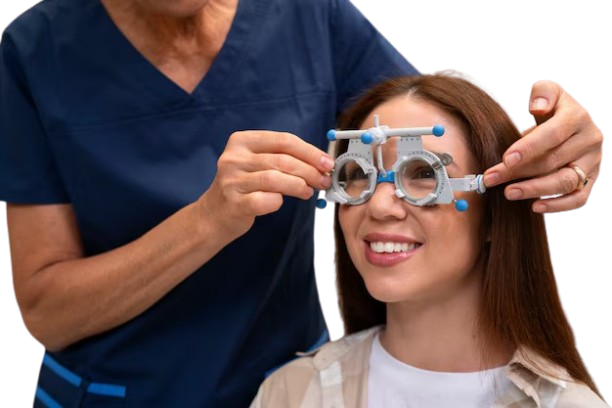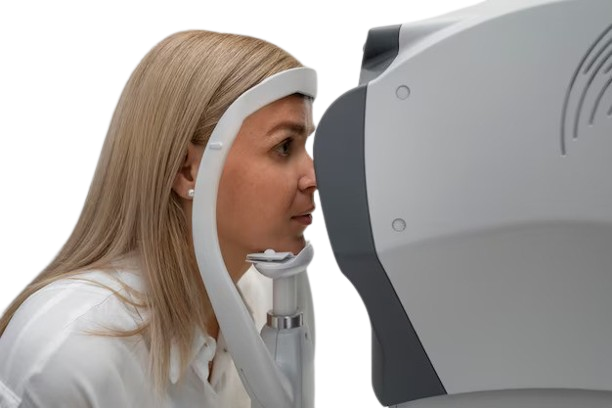Why is an Eye Checkup Important?
Regular eye checkups are essential for maintaining healthy vision and detecting any potential issues early on. Many eye conditions, such as glaucoma, cataracts, and macular degeneration, can develop gradually without noticeable symptoms. An eye exam can help detect these issues before they become serious and allow for prompt treatment, preserving your eyesight.
An eye exam is more than just checking for nearsightedness or farsightedness. It provides a comprehensive evaluation of the health of your eyes and can even uncover underlying health problems, such as diabetes or high blood pressure.


What Happens During an Eye Checkup?
- Vision Testing
- Eye Health Assessment
- Retinal Exam
- Color Vision Test
- Binocular Vision Testing
- External Eye Evaluation
Who Should Get an Eye Checkup?
- Children: Early eye exams are essential to detect issues like amblyopia (lazy eye) or refractive errors that could impact learning and development.
- Adults (ages 18-40): Even if you don’t have any symptoms, it's important to have regular eye exams to check for common issues like nearsightedness or astigmatism. Exams every 2 years are recommended unless you experience vision problems.
- Adults (ages 40 and older): After age 40, it’s crucial to have yearly eye exams, as this is when age-related conditions like presbyopia, cataracts, and glaucoma become more common.
- People with Risk Factors: If you have a family history of eye diseases or conditions like diabetes, high blood pressure, or a history of eye trauma, more frequent eye checkups may be necessary.


Schedule a Consultation
If you're considering eye surgery, it's essential to consult with an experienced ophthalmologist or eye surgeon. Our team is committed to providing personalized care and helping you determine the best treatment option to improve your vision and eye health.
Benefits of Regular Eye Checkups
- Early Detection of Eye Diseases: Conditions like glaucoma, cataracts, and macular degeneration often have no symptoms in the early stages. Regular exams help detect these conditions before they cause significant vision loss.
- Prevent Vision Loss: By identifying eye diseases early, you can receive treatment that can help prevent further damage and preserve your vision.
- Updated Prescription: If you wear glasses or contacts, an eye exam ensures that your prescription is up-to-date, helping you maintain clear and comfortable vision.
- Overall Health Monitoring: Eye exams can reveal underlying health conditions, such as diabetes or high blood pressure, which can be detected through changes in the blood vessels in your eyes.
- Peace of Mind: Regular checkups ensure that you are proactive about your eye health, giving you confidence that any potential problems are being addressed early.

Schedule Your Eye Checkup Today
An eye checkup is a simple and quick way to protect your vision and overall health. Whether you’re due for a routine exam or experiencing changes in your vision, our team of experienced eye care professionals is here to provide you with comprehensive, personalized care.
